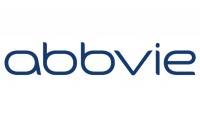AbbVie (ABBV) Announces BOTOX Receives FDA Approval for Pediatric Detrusor Overactivity Associated with a Neurologic Condition

Get Alerts ABBV Hot Sheet
Overall Analyst Rating:
BUY (= Flat)
Dividend Yield: 3.8%
Revenue Growth %: -2.5%
Join SI Premium – FREE
Allergan, an AbbVie (NYSE: ABBV) company, today announced that the U.S. Food and Drug Administration (FDA) has approved BOTOX® for the treatment of detrusor (bladder muscle) overactivity associated with a neurologic condition in pediatric patients 5 years of age and older who have an inadequate response to or are intolerant of anticholinergic medication.
Neurogenic detrusor overactivity occurs when the spinal cord and bladder are not able to communicate effectively, which can occur with neurologic conditions such as spina bifida and spinal cord injuries. As a result, the bladder muscle involuntarily contracts, increasing the pressure in the bladder and reducing the bladder capacity, which can cause the individual to leak urine frequently and unexpectedly. Elevated bladder pressure can also lead to bladder and kidney damage over time.
"BOTOX® is the first neurotoxin approved for use in treating neurogenic detrusor overactivity in children who are not adequately managed with anticholinergic medication. While always satisfying to bring forth new indications, it is particularly rewarding when we can help advance care for pediatric patients with BOTOX®," said Mitchell F. Brin, M.D., Senior Vice President, Chief Scientific Officer, BOTOX® & Neurotoxins, AbbVie. "This milestone marks the 12th approved therapeutic indication for BOTOX®, adding another approved use to the pediatric portfolio. Building upon our 30-year heritage in BOTOX® research and development, we remain steadfast in our pursuit of neurotoxin innovation to address unmet medical needs across therapeutic areas."
The FDA approval is based on data from a randomized, double-blind Phase 3 study evaluating the safety and efficacy of BOTOX® in more than 100 pediatric patients with neurogenic detrusor overactivity and a long-term extension study. Results from the Phase 3 study demonstrated that intradetrusor administration of BOTOX® 200 Units (not to exceed 6U/kg) reduced daytime urinary incontinence episodes, the study's primary endpoint, as well as lowered maximum bladder pressure and increased bladder capacity at week 6 (primary timepoint). The most common adverse reaction in the studies were bacteriuria (20%), urinary tract infection (7%), leukocyturia (7%), and hematuria (3%).
"Many children with underlying neurologic conditions may experience bladder and kidney damage over time, which underscores the importance of treatment. When caring for pediatric patients with neurogenic detrusor overactivity, we strive to reduce bladder pressure and increase the bladder's capacity. Previously, treatment options were limited primarily to anticholinergic medicines, where long-term use needs to be considered carefully, in addition to surgery," said Paul F. Austin, M.D., FAAP, Chief of Pediatric Urology at Texas Children's Hospital and Professor of Urology at Baylor College of Medicine. "Effectively managing neurogenic detrusor overactivity requires ongoing care, and there has been a high unmet need for alternative treatments. With its proven safety and efficacy profile, BOTOX® offers a new treatment option for pediatric patients who are not adequately managed by anticholinergics."
There are several causes of neurogenic detrusor overactivity in children, such as transverse myelitis, spinal cord injury, and spina bifida, the latter of which is the most common and affects 1,500-2,000 of the more than 4 million babies born in the United States each year.1 More than 90% of those living with spina bifida experience urinary symptoms.2,3,4,5
Allergan is committed to providing resources and services, such as the BOTOX® Savings Program, to help ensure BOTOX® is accessible and affordable to patients.
Serious News for Serious Traders! Try StreetInsider.com Premium Free!
You May Also Be Interested In
- AbbVie (ABBV): New Data Show RINVOQ Demonstrated Superiority Versus DUPIXENT Across Primary and All Secondary Endpoints
- XOMA (XOMA) Earns $9M Milestone as FDA Grants Accelerated Approval to Day One’s OJEMDATM
- Mainz Biomed (MYNZ) Reports Positive Topline Results from Pooled Study Evaluating Novel mRNA Biomarkers and Proprietary AI Algorithm
Create E-mail Alert Related Categories
Corporate News, FDA, Management CommentsRelated Entities
Twitter, Definitive Agreement, FDASign up for StreetInsider Free!
Receive full access to all new and archived articles, unlimited portfolio tracking, e-mail alerts, custom newswires and RSS feeds - and more!



 Tweet
Tweet Share
Share